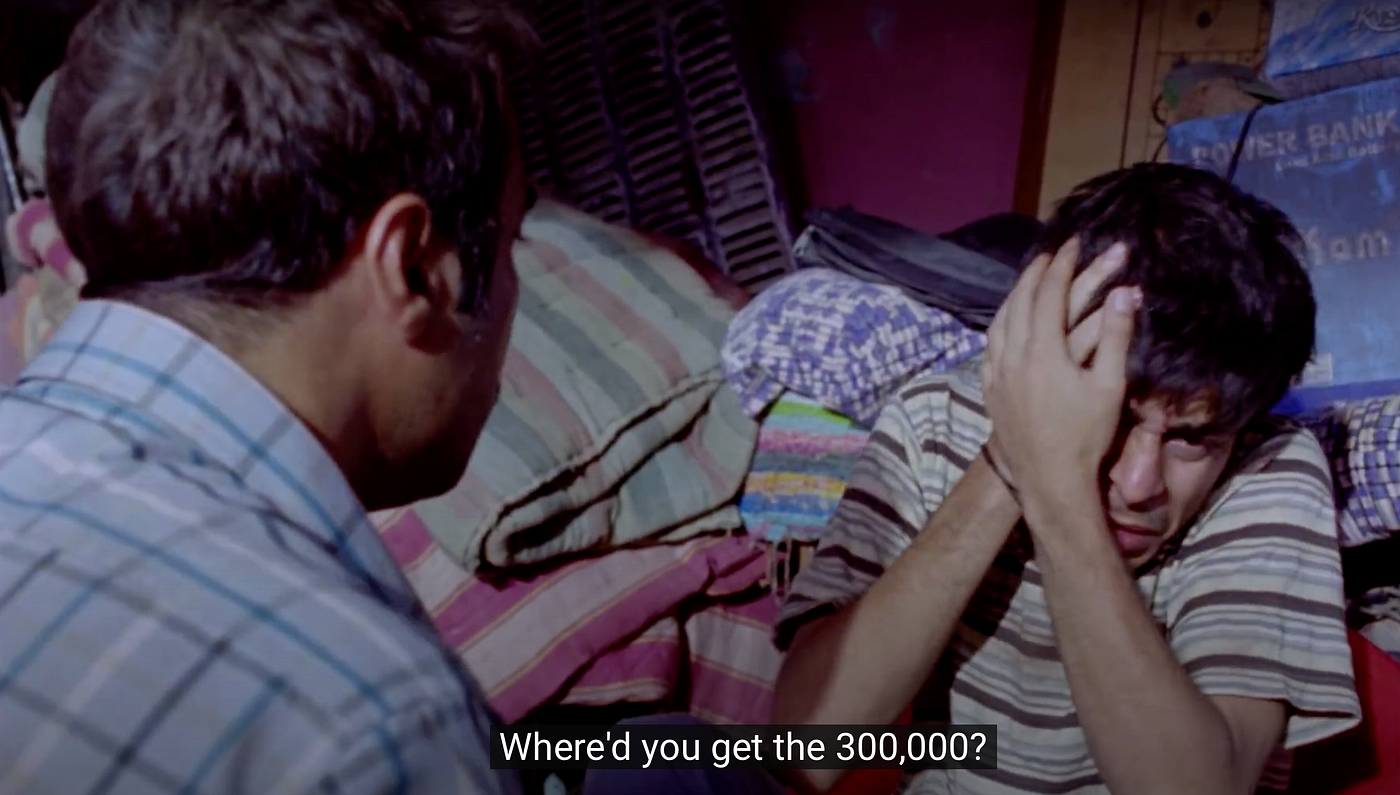
Violence and disgust are closely linked in our minds. Acts of violence are often disgusting to witness. A certain numbness can creep into the mind of a person who is repeatedly exposed to violence, but there are still times when even someone so far inured to violence can feel a bodily revulsion to it.
The act of retching seems to be endemic among the family of men in Titli’s life. At first there is no apparent reason for that to be depicted so frequently and viscerally, but by the end of the film, it feels like this has throughout been their bodies revolting against the violence in their minds.
Titli’s family is composed of small-time con-men who are incapable of rising above their worthless state in life. Even the acts of horrific crime they commit, leave them not much better off financially. The happiness of companionship, of togetherness, none of that seems to have ever crossed their threshold.
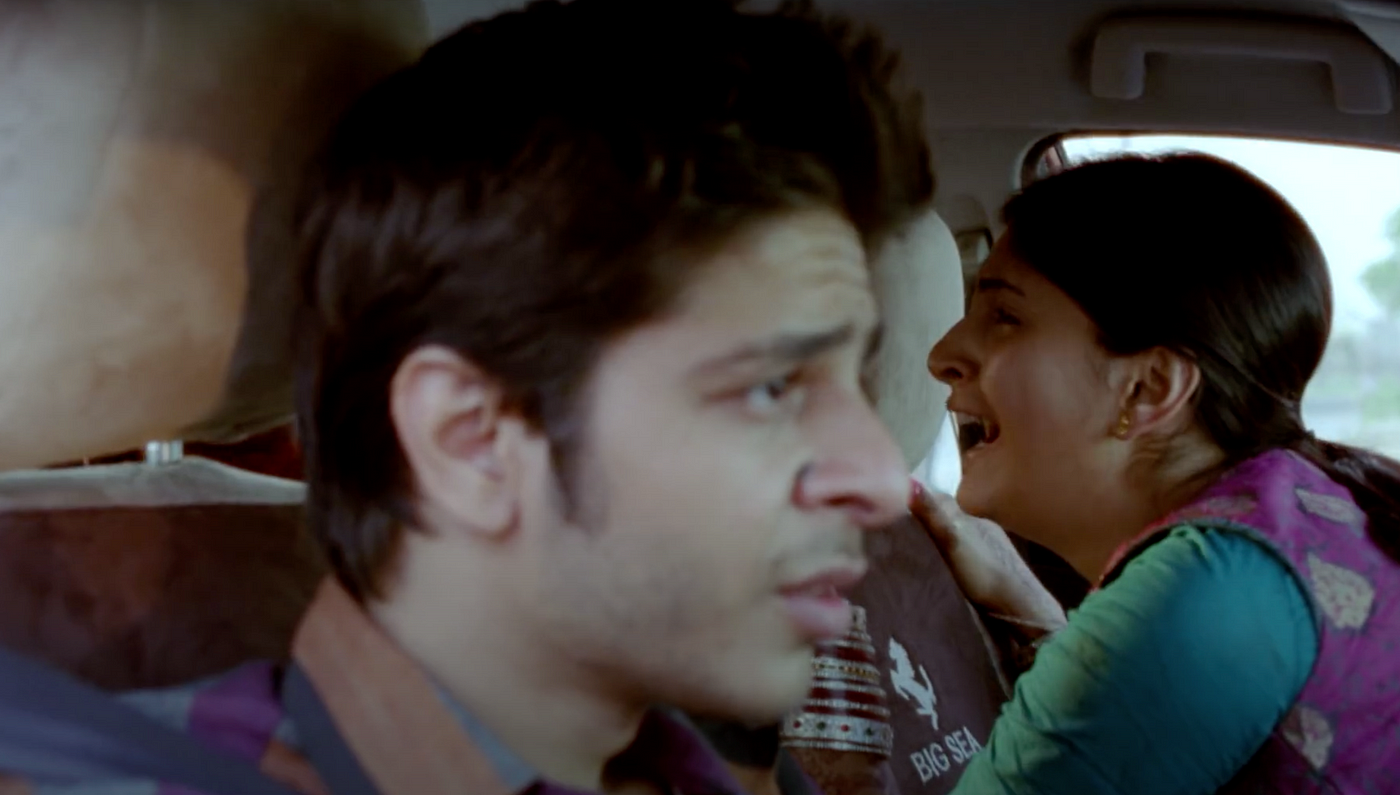
There are indications that generations of poverty have led to generations of violence. But it is also true that the fixative of violence on the canvas of their lives has been generations of apathy. The youngest is not protected by the elder, nor the elder by the eldest. Each has been exploited instead. It becomes a matter of perspective, that of each individual, to see violence as the solution or as the cause of everything they are missing in life.
Vikram, the eldest brother, has a daughter he loves, and a wife who he needs, but he cannot keep his base aggressiveness out of their lives. While trying to talk to his wife, and being pestered by a vendor demanding money, he tries for a bit to keep his attention on his family, but he loses patience and immediately responds with violence and loses his connection with family. Certainly the vendor was unpardonably rude, but to keep the home in order, more even reactions were required.
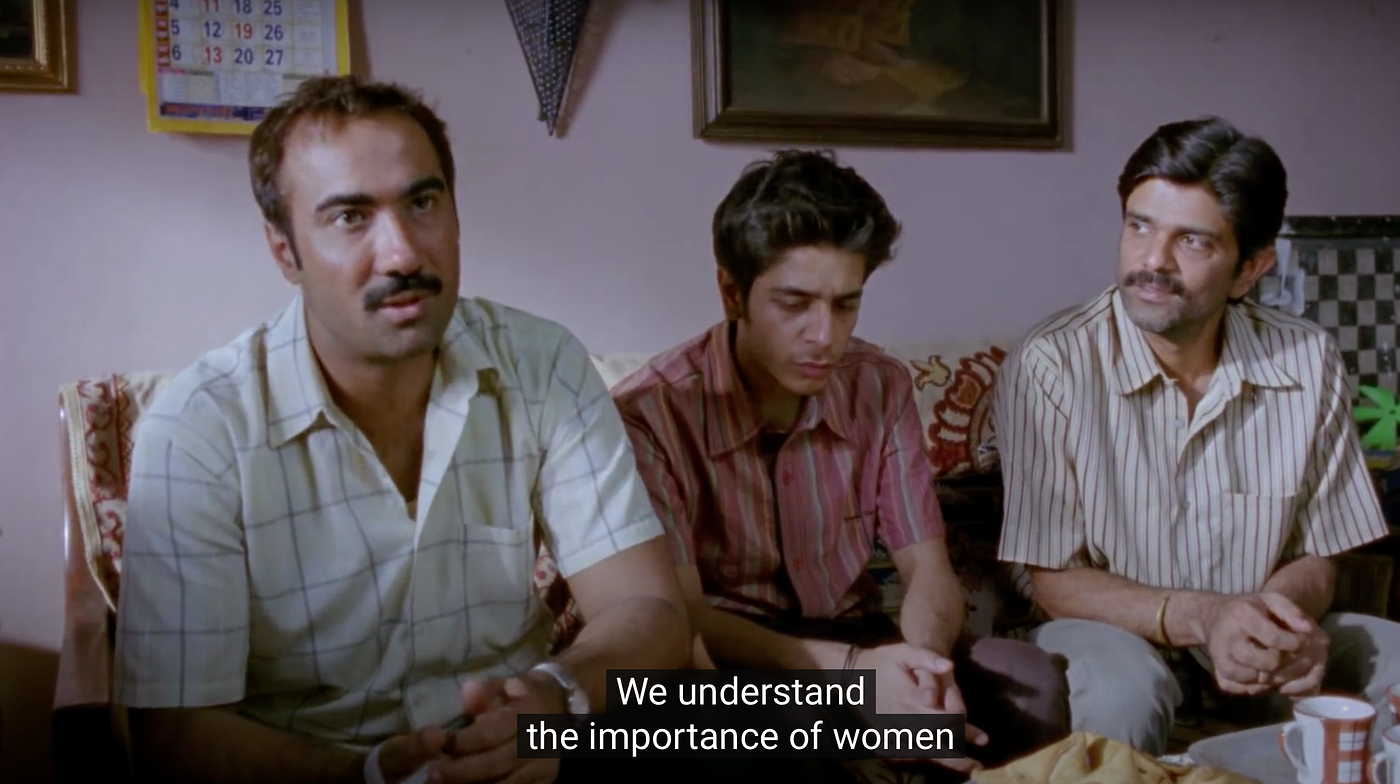
It would appear that not only money, but also love is quite a difficult commodity to acquire, even though both of these are quite basic necessities of happiness. The first is denied by the world at large, and the latter we deny ourselves.
Where Vikram and Pradeep, the middle brother, have the advantages of brawn, Titli uses the advantages of his brain. Surprisingly, or maybe not, the capacities of violence are not diminished. Titli is able to outmanoeuvre his brothers by having the ability to leave things unsaid and fight another day.
In all this, Neelu, Titli’s wife, is the only one who draws an uncompromising line in the sand. Threats of violence (never carried out) are only for self-preservation. She refuses to be party to their criminal acts and her loud protestations are the only reason the brothers ever have to rethink their plans. But where she clearly spots physical threats, she is unable to detect the mind games being played by her cheating lover. Prince Charming turns out to be Prince the betrayer. Even her parents, who forced her into this unwanted marriage with Titli, have inflicted cruelty on her and condemned her. Forced marriage becomes another form of violence.
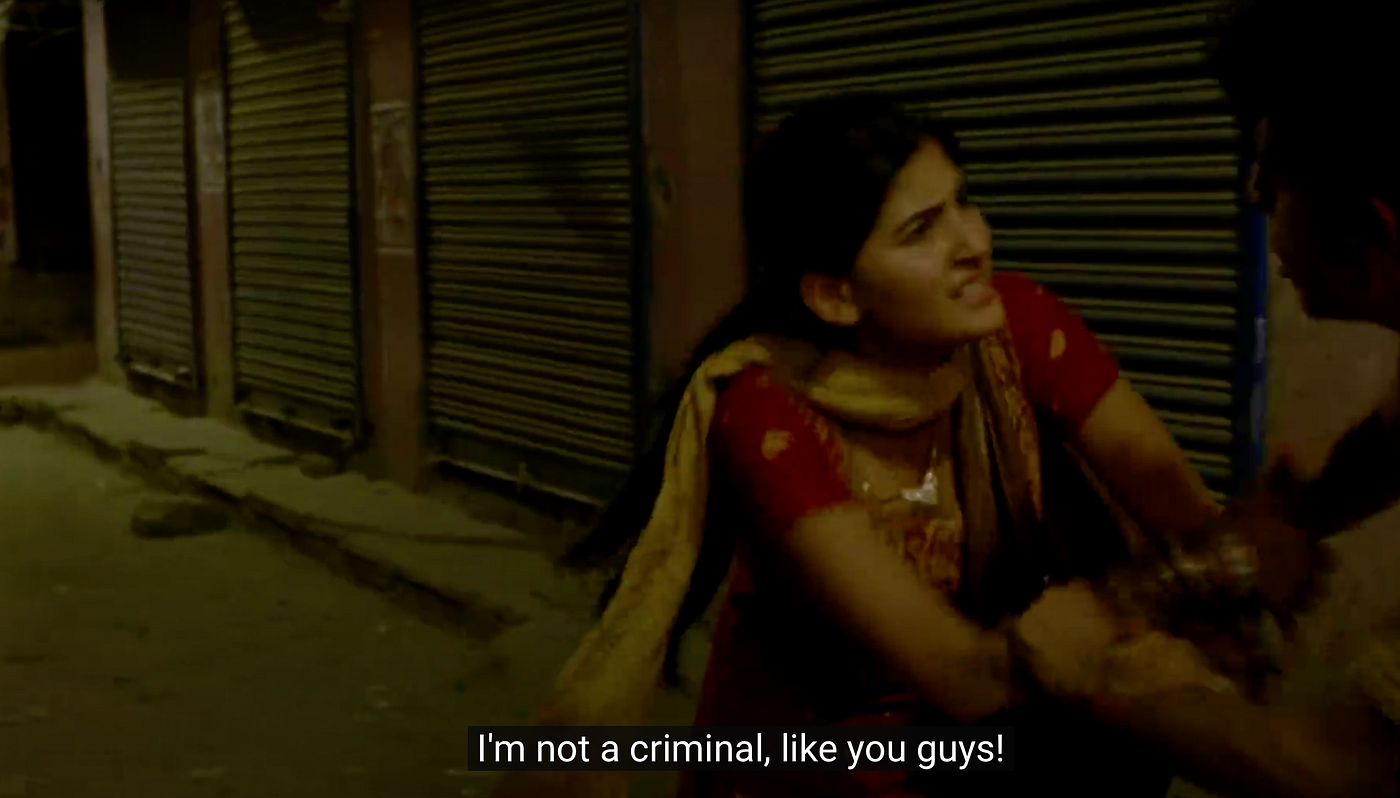
When Titli plans to break Neelu’s hand with a hammer, he anaesthetises it first so she can go through it unflinchingly. It would appear that such anaesthesia is in the air Titli’s family breathes in their home, which is why the repeated acts of violence have become so easy. Action movies play on their television loudly, almost to remind us of the difference between the glamorous violence we are shown in fiction and how sickening it is when adopted in real life.
It really is pathetic that so much deception and aggression is deployed amongst relations for just the matter of a few hundred thousand rupees. This is not life-changing money for most viewers of the film, and yet it seems worth breaking some limbs, or even possibly committing murder, over. But what that does is speak to the desperation of those who have very little capital to build a life on. It’s because they have so little, that even a little more is enough for bloodshed. From where they stand, it would really seem like there is no other choice available to them. In the movie, the city is always serene when shown from the sky level, but riddled with jackhammer scars at the street level.
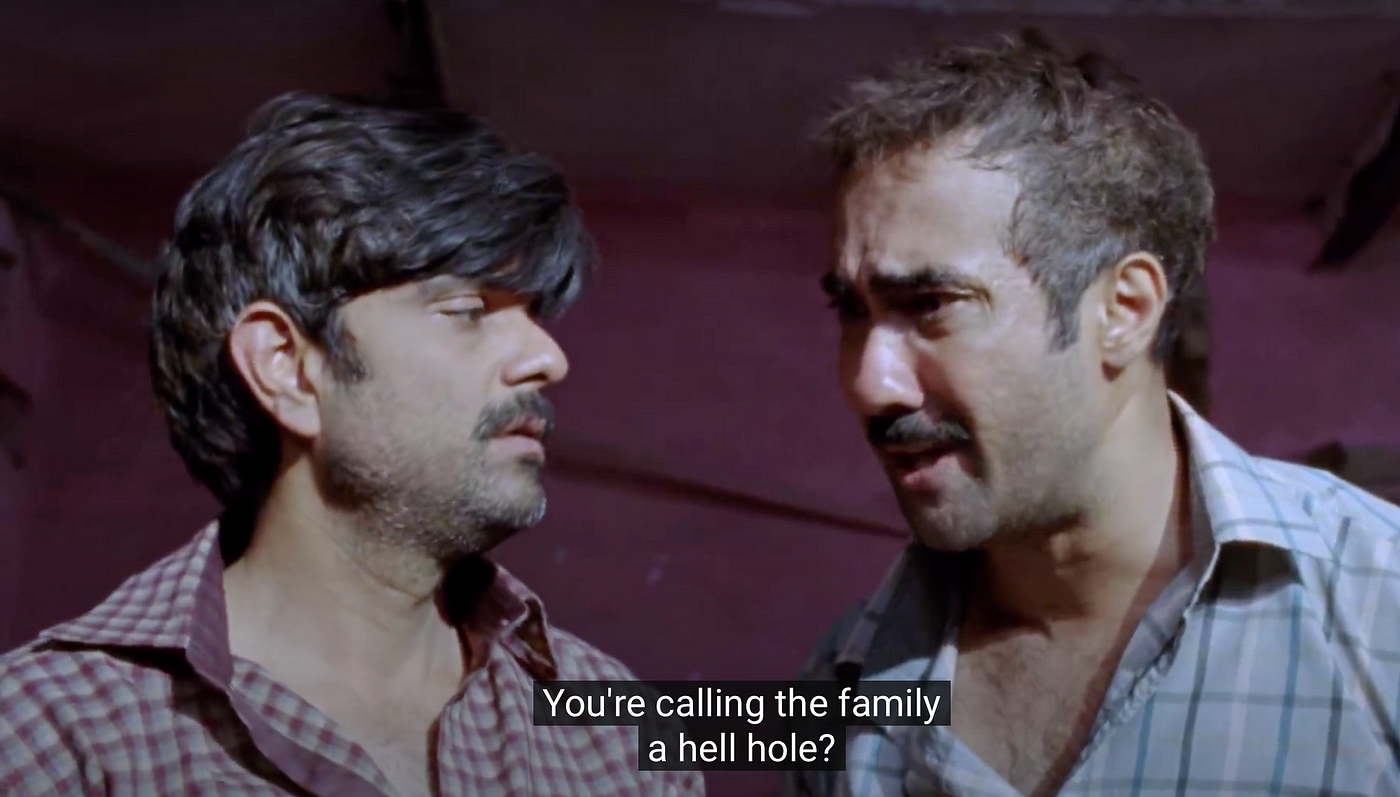
Where Titli finally makes a choice that can extract him from the cycle of endless violence, is to return to Neelu. The woman who didn’t love him was nonetheless the only good person who entered his life. He asks her to choose a life with him so they can try making something good of their lives. The way I see it, he would have to beg her because to get a second chance from her is not what he deserves. But also for Neelu it is a chance at starting a relationship with honesty, something she has not been able to find from anyone else.
This choice to break the cycle is a choice each member of the family before Titli could have made but did not. The choice is most hard when the bondage is that of family, one’s own brothers and father in this case. But perhaps that’s the final act of violence that releases the dreamers from their bondage.
Titli (whose name is the Hindi word for butterfly) is the only one from generations of his family who metamorphosed.
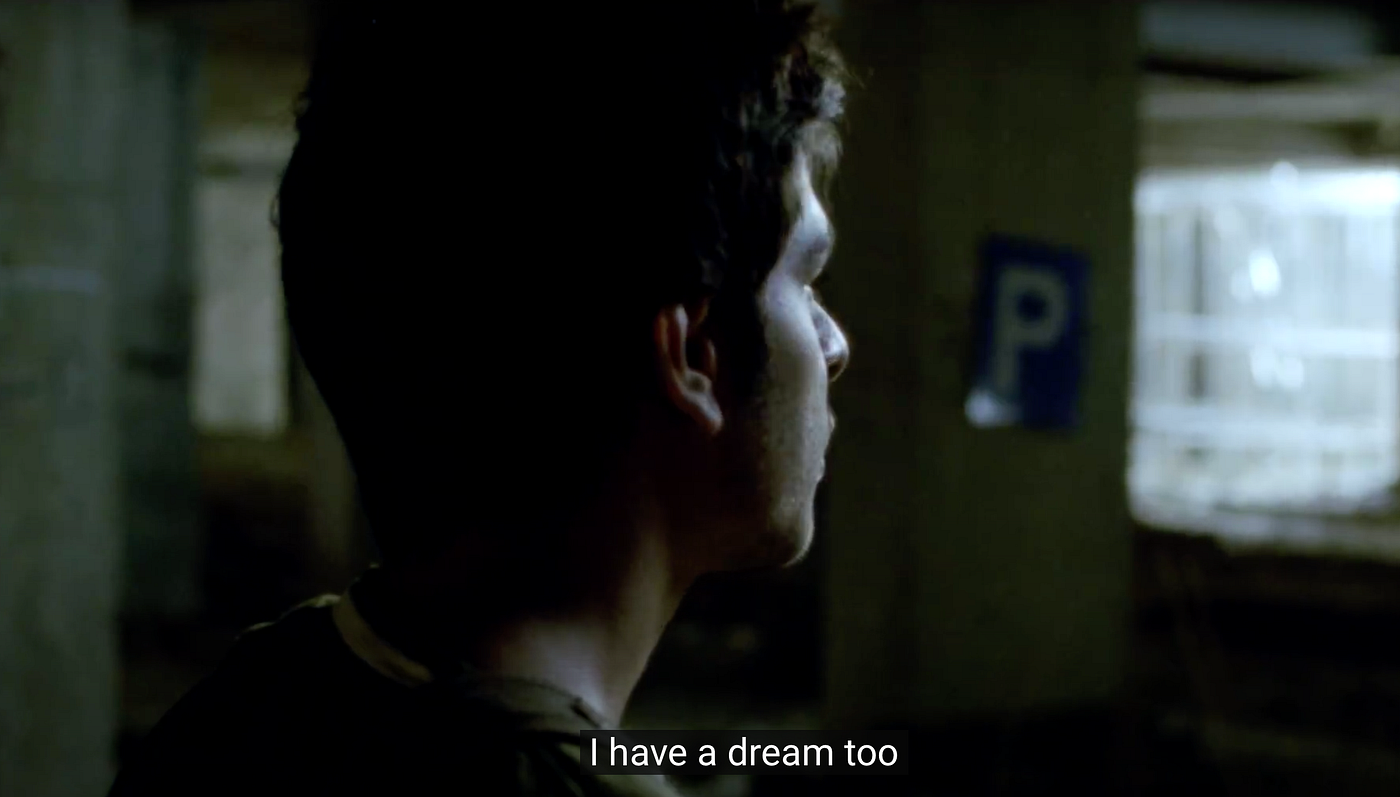
[There is one unsettling aspect to the movie which is not part of the story and may not have been intended at all by the film-makers. The disgusting factor in the movie is so high when we see the day-to-day lives of the characters that it doesn’t feel like a sympathetic look but a voyeuristic and almost leering look at the lives of the lower rungs of society. To see Titli and the others dripping phlegm so often is almost a needless cruelty on the characters. As mentioned above, it does serve a purpose in the story, but it also passes over into becoming gratuitous very early on.]
–
Titli (2014)
Directed by Kanu Behl
Story by Kanu Behl
Language: Hindi
–
Thanks for reading my essay. Your interest gives me enormous motivation to keep on writing. If you have any comments I’d love to read and respond to them. And if you want to read some of my other works then head over to www.amazon.in/Sumit-Ray/ where you can see some of my fiction writing, and also a book of essays on Satyajit Ray’s entire fiction filmography (which you can also read at www.raybyray.in).
Leave a Reply